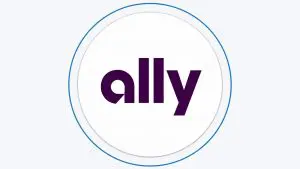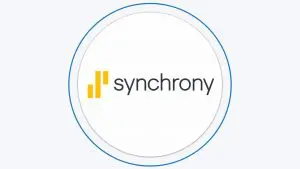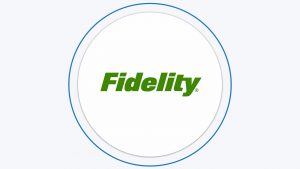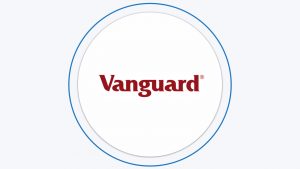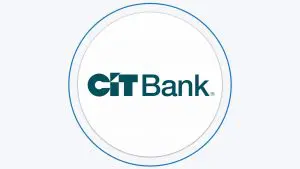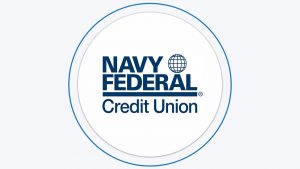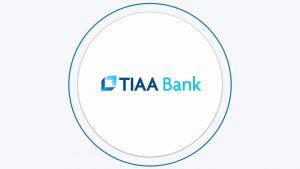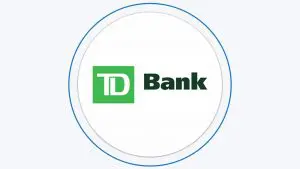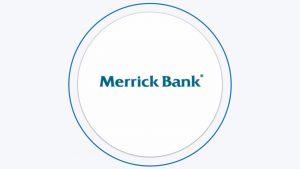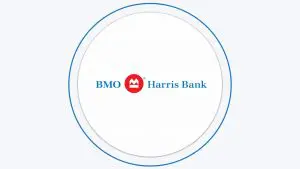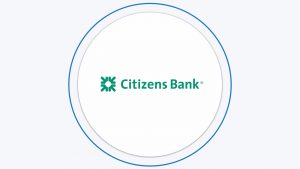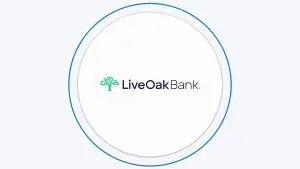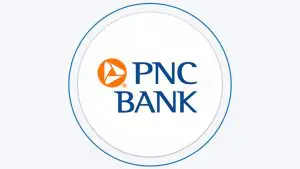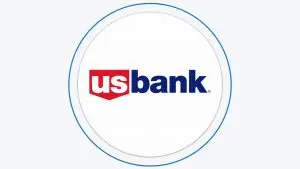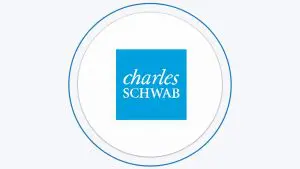Table Of Content
What Is CD Early Withdrawal Penalty?
A CD (Certificate of Deposit) early withdrawal penalty is a fee charged by banks or other financial institutions when a CD holder withdraws money from their CD before the maturity date. A CD is a type of savings account that offers a higher interest rate than a regular savings account but requires the account holder to keep the money deposited for a set period of time, known as the CD term.
The early withdrawal penalty is a way for the bank to discourage customers from withdrawing money before the maturity date, which would disrupt the bank's ability to use the funds for its lending activities. The penalty amount varies depending on the bank or institution and the specific terms of the CD, but it's typically a percentage of the interest earned or a certain number of months of interest.
Why Banks Charge Early Withdrawal Penalty?
Banks charge an early withdrawal penalty on CDs (Certificates of Deposit) to protect themselves from the risk of losing funds that were committed to be invested for a specific period. Banks use the funds deposited in CDs to make loans and investments, and they rely on the stability of these funds to support their business operations. By offering higher interest rates on CDs, banks attract deposits that they can then use to earn a profit.
When a CD holder withdraws their funds before the maturity date, it can disrupt the bank's planned use of those funds. The bank may have already lent or invested the money and would need to scramble to replace those funds. As a result, banks charge a penalty fee to discourage early withdrawals and compensate for the inconvenience caused by the withdrawal.
Early withdrawal penalties can also help banks manage interest rate risk. Banks typically offer higher interest rates on longer-term CDs, but they are exposed to the risk that market interest rates will rise during the term of the CD, which could cause them to lose money if they have to pay out higher interest rates than they are earning on their investments. Early withdrawal penalties help offset this risk by reducing the bank's exposure to interest rate fluctuations.
1-Year CD: Compare Early Withdrawal Penalty
When it comes to 1-year CD, ally bank offers the best early withdrawal penalty among the following banks, with 60 days of interest as a penalty. On the other hand, LendingClub, Bread Financial, Marcus, and Merrick bank offer the highest penalty.
Financial Institution | Early Withdrawal Penalty For 12 Months CD APY |
|---|---|
Bread Financial
| 180 days simple interest
|
Synchrony Bank | 90 days of interest
|
Capital One Bank
| 3 months of interest
|
Discover Bank
| 6 months of interest
|
PenFed Credit Union | 365 days / 30% of dividends
|
Connexus Credit Union | 90 days of dividends |
Sallie Mae | 90 days of interest
|
TIAA Bank
| 25% of total interest |
Live Oak Bank | 90 days of interest |
LendingClub | 100% of total interest |
Ally Bank
| 60 days of interest
|
Marcus | 180 days of interest
|
Merrick Bank | 180 days of interest
|
Citibank | 90 days of interest
|
Which Banks Offer The Lowest Penalty For 6-Months CD?
If you consider a 6-month CD and there is a good chance you'll want to withdraw your funds early than expected, so you may want to do it with TIAA bank, which has the lowest penalty – only 45 days.
Most financial institutions require 90 days of interest as a penalty, about twice from what TIAA offers.
Financial Institution | 6 Months CD Early Withdrawal Penalty |
|---|---|
Synchrony Bank
| 90 days of interest
|
CIT Bank | 3 months of interest
|
Capital One Bank
| 3 months of interest
|
Discover Bank
| 3 months of interest |
PenFed Credit Union | 90 days of dividends
|
Sallie Mae | 90 days of interest |
TIAA Bank
| 45 days of interest |
Live Oak Bank | 90 days of interes |
LendingClub | All Interest |
Ally Bank
| 60 days of interest
|
Marcus | 90 days of interest
|
Merrick Bank | 90 days of interest |
TD Bank | 3 months of interest
|
Top Offers From Our Partners
How To Calculate Early Withdrawal Penalty
Once you know the penalty rate or amount specified in the CD agreement, calculate the penalty by multiplying the penalty rate by the interest earned or by the principal, or by using the number of months of interest penalty as specified in the agreement.
Let's say you have a CD with a balance of $10,000 and a maturity date in one year. The interest rate on the CD is 4% per year, compounded annually. The CD agreement states that the early withdrawal penalty is equal to 90 days of interest.
- Calculate the interest earned up to the point of withdrawal. To calculate the estimated interest earned on the CD, use the following formula:
Interest Earned = Balance x Interest Rate x (Days Elapsed / 365)
Let's say you decide to withdraw the funds after 6 months, which is 182 days. The interest earned on the CD up to that point would be:
Interest Earned = $10,000 x 4% x (182 / 365) = $199.45
2. Calculate the penalty amount.
The CD agreement specifies that the penalty is equal to 90 days of interest. To calculate the penalty amount, multiply the interest earned by 90/365:
Penalty = Interest Earned x (90/365) = $199.45 x 0.2466 = $49.18
So, the penalty for withdrawing the funds early is $49.18.
Which Banks Offer The Lowest Penalty For 2-Years CD?
For 2-year CD, most banks and credit union charges 180 days of interest as a penalty. However, there are institutions such as TD Bank or Amex bank that requires higher penalty (9 months and 270 days of interest, accordingly).
Therefore, especially if you're looking for long term CD, it's recommended to compare CD options and withdrawal penalties, just in case.
Financial Institution | 2 Year CD Early Withdrawal Penalty |
|---|---|
Synchrony Bank
| 180 days of interest
|
Connexus Credit Union | 180 days of interest
|
American Express Bank
| 270 days of interest
|
Capital One Bank
| 6 months of interest
|
Discover Bank
| 6 months of interest
|
PenFed Credit Union | 365 days / 30% of dividends
|
Sallie Mae | 180 days of interest
|
TIAA Bank
| 25% of total interest |
Live Oak Bank | 180 days of interest
|
LendingClub | All interest |
Navy Federal | 180 days of dividends |
Marcus | 180 days of interest
|
Merrick Bank | 180 days of interest
|
TD Bank | 9 months of interest
|
Bread Financial | 180 days simple interest
|
How Much Is Early Withdrawal Penalty For 5-Years CD?
If you're looking for long-term CD, it's crucial to know that penalties are significantly different. While Marucs, Capital One, Citi and Ally offers up to 180 days of interest as a penalty, there are banks such as Chase (365 days of interest), American Express (540 days of interest) and BMO Harris (545 days of interest) that charges higher penalties when you want to withdraw your funds earlier than expected.
Financial Institution | Early Withdrawal Penalty For 60 Months CD APY |
|---|---|
Bread Financial
| 365 days of interest
|
Marcus
| 180 days of interest
|
Capital One Bank
| 6 months of interest
|
Discover Bank
| 18 months of interest
|
PenFed Credit Union | 365 days / 30% of dividends
|
Sallie Mae | 180 days of interest |
BMO Harris
| 545 days of interest |
Ally Bank
| 150 days of interest
|
American Express Bank | 540 days of interest
|
Chase Bank
| 365 days of interest
|
CitiBank | 180 days of interest
|
How to Avoid Early Withdrawal Penalty?
To avoid early withdrawal penalties on a CD, consider the length of the CD term and your financial needs before opening the account. Here are some strategies you can use to avoid early withdrawal penalties:
Choose a shorter-term CD: If you think you may need to access your funds before the CD matures, consider choosing a shorter-term CD. CDs with shorter terms typically offer lower interest rates but also have lower early withdrawal penalties.
Build a CD ladder: A CD ladder is a strategy where you divide your funds among multiple CDs with staggered maturity dates. By doing this, you can have access to some of your funds at regular intervals without having to pay early withdrawal penalties.
Use a no-penalty CD: Some banks offer no-penalty CDs that allow you to withdraw your funds without incurring a penalty fee before the maturity date. However, these CDs often have lower interest rates than traditional CDs.
Consider alternative savings options: If you need more flexibility than a CD can offer, consider alternative savings options like a high-yield savings account or a money market account. These accounts typically offer lower interest rates than CDs but allow you to withdraw your funds at any time without penalty.
Overall, it's important to carefully evaluate your financial needs and goals before opening a CD and to read the CD agreement carefully to understand the early withdrawal penalties and other terms and conditions of the account.

In Which Cases It’s Worth to Withdraw And Pay the Penalty?
In some cases, it may be worth it to withdraw funds from a CD and pay the early withdrawal penalty if the financial benefits of the withdrawal outweigh the cost of the penalty.
Here are a few scenarios where it might make sense to withdraw funds early and pay the penalty:
Emergency expenses: If you have an unexpected expense or financial emergency, such as a medical bill or a home repair, you may need to access your funds before the CD matures. In these cases, paying the early withdrawal penalty may be worth it to cover the necessary expenses.
Higher investment returns: If you have an opportunity to invest your funds in a higher-yield investment or other financial opportunity that offers a better return than the interest rate on your CD, it may be worth it to withdraw the funds and pay the penalty. Be sure to carefully evaluate the potential returns and risks of the new investment before making the decision.
Interest rate changes: If interest rates have significantly increased since you opened your CD, it may be worth it to withdraw the funds and pay the penalty to reinvest them at a higher interest rate. Again, be sure to carefully evaluate the potential returns and risks of the new investment.
You're afraid your bank will fail: if there is a risk to the bank's financial stability and your FDIC insurance doesn't cover all of your money, you may want to consider withdrawing your funds.
Keep in mind that paying an early withdrawal penalty will reduce the overall return on your investment, so it's important to carefully evaluate the costs and benefits of withdrawing your funds early.
FAQs
Can I transfer my CD to another bank to avoid the early withdrawal penalty?
Transferring your CD to another bank does not avoid the early withdrawal penalty. You will still be subject to the penalty if you withdraw the funds early.
What happens if I don't pay the early withdrawal penalty?
If you don't pay the early withdrawal penalty, the bank may deduct the penalty from your account or take other measures to collect the amount owed.
Can I withdraw my CD early if I close my account?
Yes, you can withdraw your CD early if you close your account, but you will still be subject to the early withdrawal penalty.
Can I withdraw a portion of my CD early?
Yes, in most cases – you can withdraw a portion of your CD early, but you will be subject to the early withdrawal penalty on the amount withdrawn.
How is the early withdrawal penalty enforced?
The early withdrawal penalty is typically deducted from the funds withdrawn from the CD, so you will receive the net amount after the penalty is applied.
Is the early withdrawal penalty tax-deductible?
No, the early withdrawal penalty on a CD is not tax-deductible.

